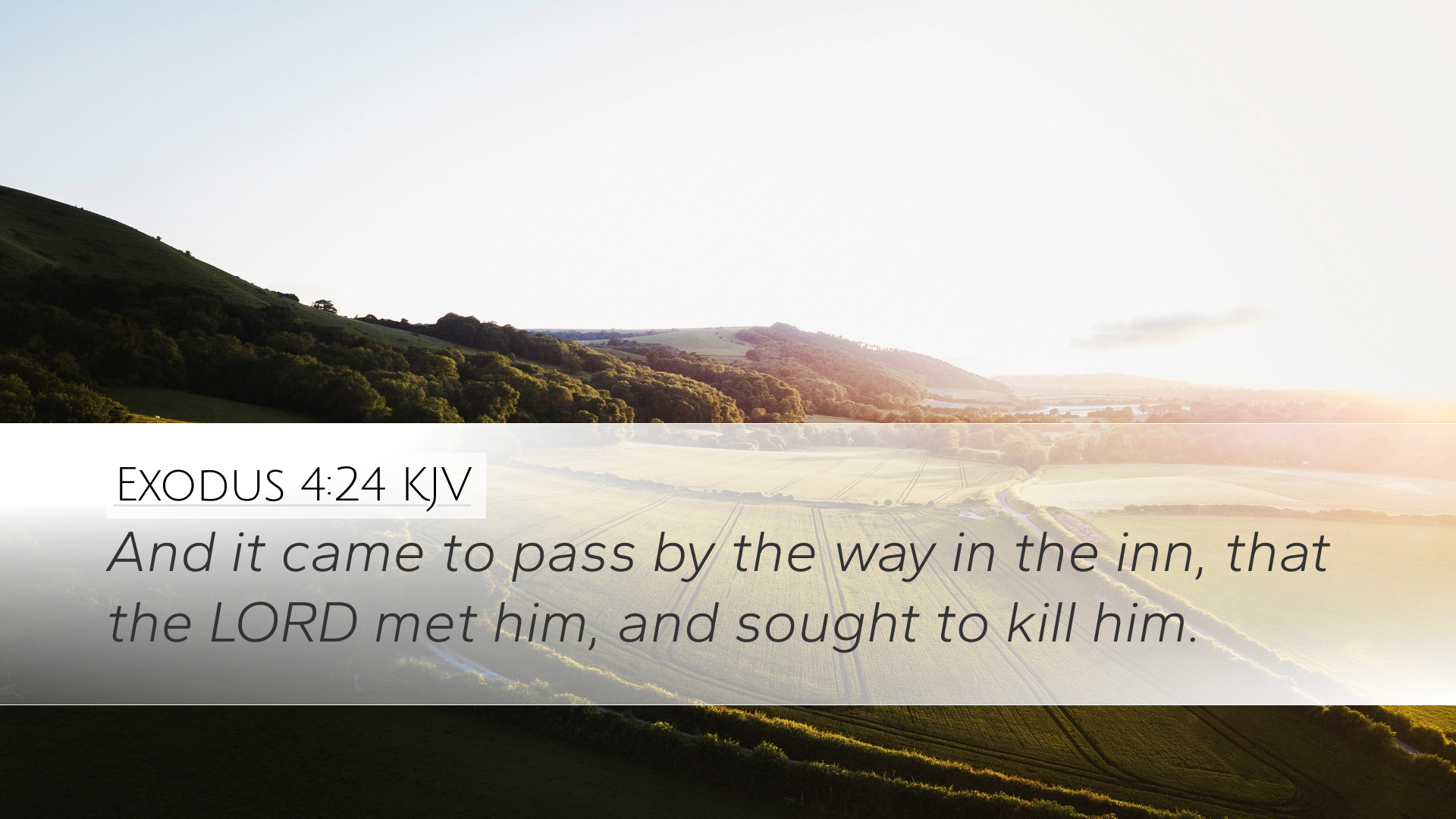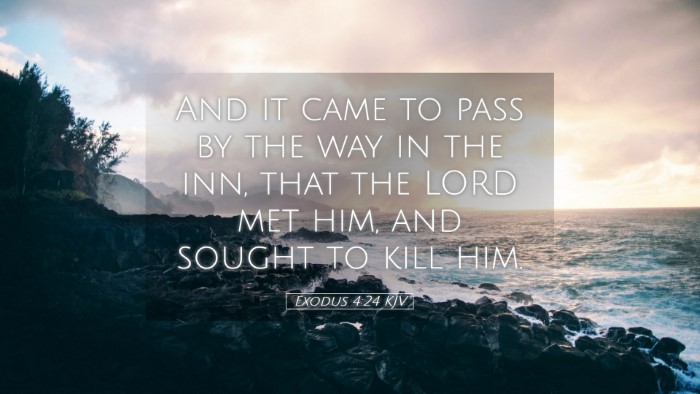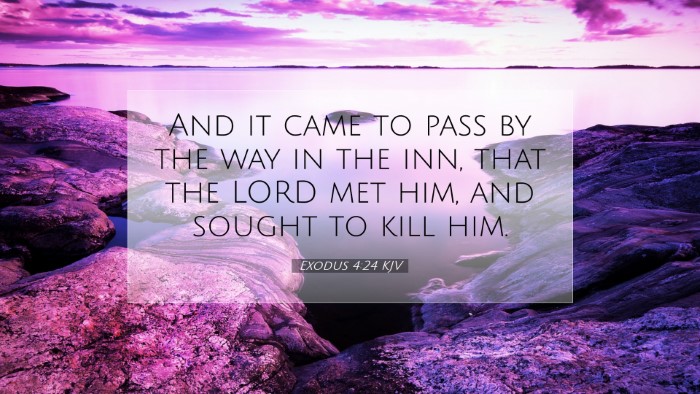Exodus 4:24 - Commentary
Exodus 4:24 presents a profound moment in the narrative of Moses, filled with theological significance and complex implications. This passage details a critical episode during Moses’ journey to confront Pharaoh. As Moses travels with his family, God’s actions speak deeply about the holiness, covenant obligation, and the seriousness of divine appointment.
Text of Exodus 4:24
"And it came to pass by the way in the inn, that the Lord met him, and sought to kill him." (Exodus 4:24, KJV)
1. Contextual Analysis
Understanding this verse requires examining its context within the Exodus narrative. Moses has been chosen by God to lead the Israelites out of Egypt. Yet, even as he is commissioned, he faces a severe encounter with God on his journey. This juxtaposition highlights the tension between divine calling and human obedience.
1.1 Historical and Cultural Context
Moses' background as a Hebrew raised in Pharaoh's household places him in a unique position. His initial flight from Egypt (Exodus 2) and subsequent encounter with God at the burning bush (Exodus 3) set the stage for his return to Egypt. However, it is crucial to note the significance of covenant and obedience in ancient Israel; failing to uphold covenant obligations had dire consequences.
2. Theological Implications
This verse sheds light on several critical theological themes:
- Divine Intervention: God’s intention to kill Moses while he is en route showcases His sovereignty and holiness. It illustrates that being chosen by God does not exempt one from divine judgment if there is disobedience.
- Covenant Responsibility: The narrative suggests an immediate connection between God's call to Moses and the covenant ceremony. It is imperative for Moses to align with God's expectations regarding circumcision, which is an essential sign of the covenant.
- Grace and Obedience: This encounter challenges readers to consider the balance between grace and obedience. Although Moses is chosen for a monumental task, his failure to practice the covenant demonstrates that grace does not overlook the necessity for obedience.
3. Commentaries from Historical Figures
3.1 Matthew Henry
Matthew Henry critiques this instance as an alarming yet necessary reminder of God's prerogative. He emphasizes that “the Lord met him” — which signifies a divine confrontation. Trusting in God's purpose is vital, yet the need for personal holiness and covenant fidelity cannot be overstated. Henry draws attention to the severity of God's intentions: “He sought to kill him,” underlining that Moses was not above divine scrutiny.
3.2 Albert Barnes
Albert Barnes provides insights into the severity of the moment. He notes that God’s action can be understood through the lens of anger against the neglect of circumcision within Moses' family. Barnes articulates that Moses’ failure represents a serious lapse in fulfilling God’s commands. His commentary prompts a reflection on the broader implications for those in ministry, critically analyzing their adherence to divine expectations as leaders.
3.3 Adam Clarke
Adam Clarke expands on the narrative's mystical aspects, pondering the meaning behind this encounter. He suggests that while God’s intention to kill Moses seems extreme, it serves the greater purpose of ensuring that the leader of God’s people itself remains blameless. Clarke highlights the intricate relationship between God's righteousness and humanity’s need for grace, framing this encounter as a transformative moment for Moses, needing reconciliation with God’s standards.
4. Lessons for Pastors and Theologians
This verse invites reflection on several pertinent themes for today’s spiritual leaders:
- Call and Accountability: Being called to lead comes with a profound accountability to uphold God’s commandments. Leaders must ensure they maintain personal integrity aligned with their divine commission.
- The Necessity of Obedience: It is crucial to recognize that calls to ministry are not merely about positional authority but come with the responsibility to embody God's covenant expectations.
- Understanding Divine Grace: Moses’ encounter underscores that God's grace invites not only transformation but also an expectation for a transformed life in obedience to His will.
5. Conclusion
Exodus 4:24 challenges readers to confront the depths of their relationship with God. The juxtaposition of divine calling and the seriousness of covenantal obligations remains a relevant and vital theme in understanding ministry today. Leaders, scholars, and students are reminded that God’s grace is not merely an exemption from judgment but a call to live in obedience to His commands.


